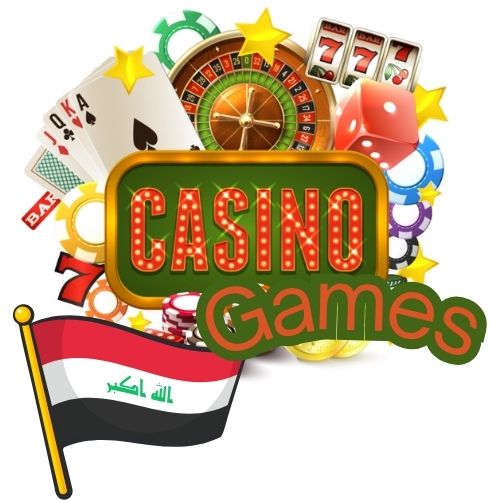
In online casinos, you can find several types of casino games available that satisfy every need and every taste of Iraqi players.
On this page today, we are going to discuss what these casino games are, which ones are the most popular, as well as common tips and info you need to know before choosing a game.
Play Casino Games in the Best Sites
Popular Casino Game Types
In general, in online casinos, you can find countless casino games. However, they are usually grouped into four categories: table games, slots — usually the category with the most titles (you can easily find thousands of slots in each casino), live casino games, and lottery or number games.
Table Games
Table games are more or less classic card or dice casino games that you can find in online casinos, and most of them have been played in land-based casinos long before the online versions were created.
Roulette
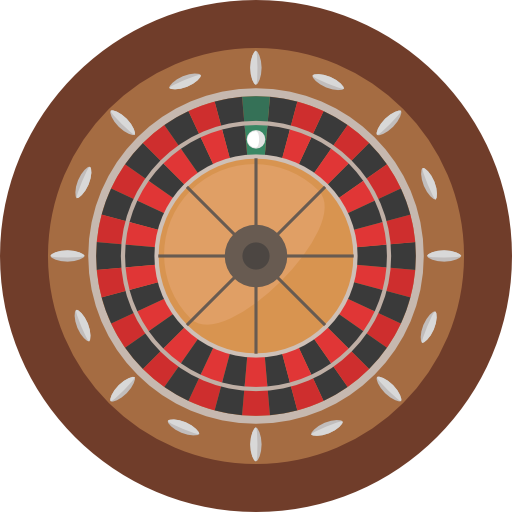
Online Roulette is by far the most famous casino game in Iraq. It’s one of the classics. It consists of a spinning wheel with numbered pockets. The most common versions available of this game are European Roulette and American Roulette. The only difference is that American Roulette has an extra zero pocket. However, most people prefer European Roulette because the extra zero in American Roulette increases the house edge. The gameplay is simple: players have to bet on where the ball will land, in which pocket. The common bets are red, black, odd, and even. There are other, more specific bets called inside bets. You can check more about the game in our Online Roulette page.
Blackjack
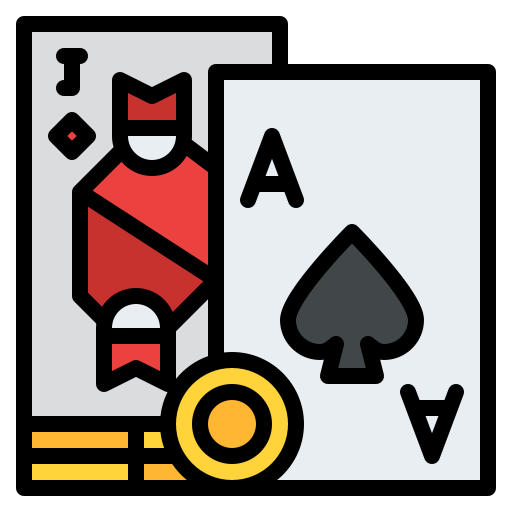
Blackjack is more of a strategic card game, where you have to have a card count as close to 21 as possible, but not exceed it, or you go bust. The main purpose of this game is to beat the dealer. The players do not compete against each other; they compete against the dealer.
In Blackjack, the number cards are worth their face value. The Ace can be 1 or 11. Jack, Queen, and King are worth 10. You immediately win if you get an Ace with a Queen, Jack, or King. It’s called the Blackjack hand.
Poker
Online poker is different from the poker rooms where people play with their friends and compete against each other. It’s not like that in online casinos. In online poker, you play either against the computer or against a live dealer, depending on the version. There are many variations of poker available: Three Card Poker, Caribbean Stud, Casino Hold’em.
The poker hands are exactly the same as in classic poker games, like pair, straight, flush, and full house. No bluffing is required here because it’s a fast-paced game. It’s, again, different from poker rooms. There is also video poker, which is a combination of slots and poker.
Baccarat

Baccarat is known for being both simple and elegant. The main goal is to bet on the Player, the Banker, or a Tie — you’re not playing the hand yourself, just betting on which one will be closer to a total of 9. Cards 2–9 are face value, 10s and face cards are worth 0, and Aces are worth 1. If a hand exceeds 9, only the second digit counts (e.g., 14 becomes 4). The Banker bet is statistically the best option, with a slightly lower house edge. Versions like Punto Banco, Mini Baccarat, and No Commission Baccarat are commonly found in online casinos.
Craps

Craps is a fast-paced dice game where players bet on the outcome of the roll, or a series of rolls, of two dice. The most basic bet is the Pass Line, where you win if the first roll (the “come-out roll”) is 7 or 11, and lose on 2, 3, or 12. If another number (point) is rolled, the game continues until a point or a 7 is rolled. Craps offers a wide range of betting options like Come, Don’t Pass, Odds Bets, and Hardways, which can seem overwhelming at first. But once you learn the layout, it becomes one of the most exciting games with some of the best odds for players.
Casino War
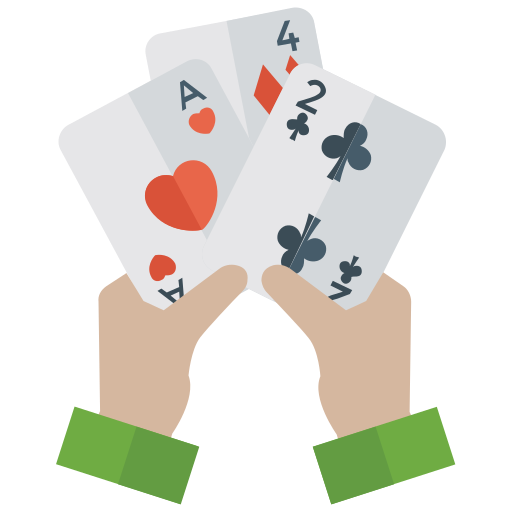
Casino War is one of the simplest table games — it’s based on the childhood game “War.” Both you and the dealer receive one card; the higher card wins. If there’s a tie, you can either surrender (and lose half your bet) or go to “war” by matching your original bet. If you win the war, you get paid even money. It’s fast, easy, and requires no strategy, making it popular among beginners or players looking for low-stress action. However, the house edge is higher than it seems due to the way ties are handled, so seasoned players often skip it in favor of games with better odds.
Slots

Online slots are the casino games which you find the most in online casinos. Each operator easily has at least 2,000 slot games. These slot games come in different types:
- Classic Slots: These are inspired by old-school slot machines. They usually have three reels. The gameplay is very simple, usually with no extra features, and the symbols are often fruit symbols, which, again, is a classic slot machine feature.
- 5-Reel Slots: At this moment, these are the most popular ones. Most online slots consist of 5 reels, and they often have features like wild symbols, bonus rounds, and scatter symbols. They come in many themes like Greek mythology, jungle, diamonds, candy, and more.
- Progressive Jackpots: With every spin, the big prize accumulates until one lucky player is able to win the jackpot, as the game dictates. One of the most famous jackpot titles is the Mega Moolah slot.
- Megaways Slots: They use dynamic reels, which are very different from the classic paylines that most other slots use. This was created by Big Time Gaming and has been adopted by many software providers because of the popularity they gained since the payout possibilities can reach hundreds of thousands.
- Bonus Buy Slots: Instead of waiting for three or more wildcards to land, bonus buy slots allow you to pay for a bonus round where much bigger multipliers are automatically available, giving you the chance to win bigger. The downside is that the bonus can be expensive — it’s often at least 80 times the size of your bet.
- Cluster Pays Slots: Also called scatter pays — in other words, “anywhere wins” — this means that the symbols do not have to land on a specific line, as with most slots. You just need to have the same symbol a certain number of times, anywhere on the screen, to win. The most famous scatter pay slots are Gates of Olympus, Sweet Bonanza, and several others developed by Pragmatic Play.
Live Casino Games

Most live casino games are table games, but instead of playing against a computer, they are the closest thing you can get to a land-based casino. That’s because the dealers are real humans, and the games are streamed from a live studio. For example, the roulette tables are real, the blackjack tables are real — it’s truly an immersive experience.
The classic table games — such as roulette, for example — also come in several variations, adding to the excitement of the gameplay. For instance, there’s the Lightning Roulette series, where lightning can strike certain numbers and significantly increase their multipliers. There’s also Side Bet Blackjack, where you can place side bets in addition to the main gameplay. The list goes on.
Another type of live casino games that were introduced and have become popular among Iraqi players — and casino players worldwide — are game shows. You often see, for example, TV shows we are used to, like Deal or No Deal, or board games like Monopoly, made into live casino game shows that are very interactive, colorful, and lively.
Lottery & Number Games
Lottery and numbered casino games are a great getaway from the regular online casino experience, even though they are not found in all online casinos. They provide players with very simple, straightforward gameplay solely depending on luck, so they’re good for those who want to switch it up a bit from time to time. There are four common types of lottery and number games: Keno, lottery, scratch cards, and bingo.
Keno

Keno is a lottery-style casino game where you pick numbers from a large pool, usually between 1 and 80, depending on the variation. The more numbers you match, the bigger your win.
Lottery

Online lottery works the same way as the national lottery, like the National Iraqi Lottery. You buy a ticket and try to guess the numbers for a chance to win the big prize.
Scratch Cards

Again, it’s the same concept as the scratch card vendors you see on the street, where you have to scratch with a coin or something to match the symbols. Only here, they’re not real cards — they’re virtual cards. They’re quick, fun, and require zero skill.
Bingo

Online Bingo is the same as the classic number game where players have cards with randomly arranged numbers. The system draws numbers at random, and players mark off the matching numbers on their cards. The goal is to complete a specific pattern, like a full line, four corners, or a full house, before the other players. In many cases, online bingo includes chat rooms, making it just as interactive as the real game.
How To Choose A Casino Game
Before choosing to play a casino game, there are several factors that you need to watch out for and carefully read and understand before you engage in the game. Due to these factors, there may be better options out there with the same game features.
RTP Percentage
Some casino games have a higher return-to-player percentage than others. This is especially important to watch out for in slot games. Any slot game that has an RTP percentage lower than 94% is not a good option to play. The best ones are those with 96% and above.
House Edge
The house edge percentage is similar to the RTP. It’s the percentage that the casino wins after you play for a certain period. For example, if the house edge is 5%, it means that the casino will likely win $5 for every $100 bet you place, for amount of $100 of bets you place. A good house edge is typically less than 5%, as seen in games like European Roulette or Blackjack. Blackjack has a very low house edge, which is only 1%, making it a great choice. Slots and American Roulette have a house edge higher than 5%.
Fairplay
Since all casino games are RNG-based, it’s important to make sure that the online casino you’re playing in is certified. If they are certified, it means they must submit a Fairplay certificate to verify the fairness of the games and confirm that they are indeed RNG-based and not rigged.
Volatility
A highly volatile game means that you win less often, but you win a much bigger amount of money. The opposite is true for games with low volatility — you win more often, but the amounts are smaller. This mostly applies to slots. It depends on the type of player you are, whether you’re a risk taker or not.
Demo Play
Apart from the live casino section — where there is never a demo available — it’s important that other games do have this feature, because it allows players to experience the game before they have to stake real money.
Game Provider Reputation
You must choose casino games from well-known software providers such as Evolution, Pragmatic Play, NetEnt, and others. When a game comes from a reputable software provider, you can be sure that the game is going to be high quality and fair.
Bet Limits
This also depends on the type of player you are. Some VIPs like to be at exclusive tables where the minimum bet is $100. Others prefer to play at tables or even slots with minimum bets as low as $0.10.
Free Casino Games VS Real Money Casino Games
In Iraqi online casinos, you can find the same games available to play for real money and for free. Which one is a better option for you? Which one do players prefer? Of course, each has its advantages and disadvantages. The main difference is: with real money games, you are staking your real money, but also winning real money and losing real money. With free games, you’re not staking anything, but you’re also not winning anything. You’re just having fun and learning.
| Free Casino Games | Real Money Casino Games |
| ✅ Perfect to learn the gameplay | ✅ Real money wins |
| ✅ No Money losses | ✅ Access to more games |
| ❌ No real money wins | ✅ Low bet limits allow you to learn for minimal losses |
| ❌ Not available for all games | ❌ Real money losses |
Top 5 Casino Game Providers
As we have stated before, certain software providers have a solid reputation in the iGaming industry. When you see a game provided by them, you can rest assured that the game will be high quality and fair. Below, we will mention five of these reputable casino game software providers, but please note that the list can include over 50 names.
- Evolution: They are the leaders in live casino games — no one can compete with them. They are famous for producing creative and innovative variations of classic games, such as Lightning Roulette, and game shows like Crazy Time and others. They were even the ones who introduced Arabic Roulette and live tables in other languages in general.
Pragmatic Play: They are also strong in live casino games; however, they are the leaders when it comes to slots, because the most famous slots — such as Gates of Olympus, Sweet Bonanza, and Starlight Princess — are all titles produced by Pragmatic Play.
- Playtech: Also one of the classics and one of the biggest names in the iGaming industry. They offer a wide range of games, varying between slots and live tables. They have branded titles like Age of the Gods.
- NetEnt: Though they may not have the most famous titles nowadays, they remain one of the classics in casino games because they are considered veterans in the industry. They are best known for creating iconic titles like Starburst and Gonzo’s Quest, and they have some of the highest RTP slots.
- Yggdrasil: Known for its creative and visually stunning slots with unique gameplay mechanics and strong storytelling. Such slots include Vikings Go Berzerk and Valley of the Gods.
Mobile Casino Games
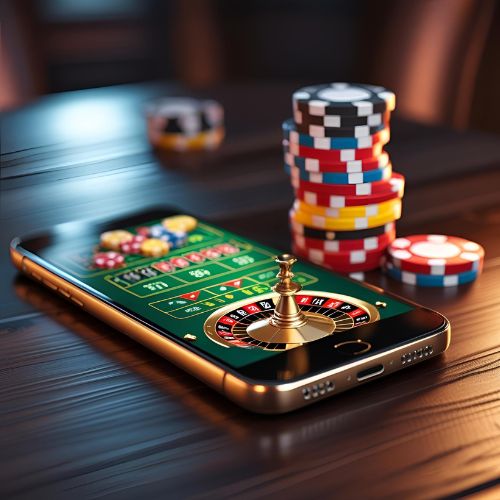
Nowadays, most people prefer to play on the go. Not everyone wants to open their laptop, visit the casino site, and play a casino game online. Most people prefer the practicality of playing from their mobile phones or tablets.
This is why all online casinos either provide a mobile app for Android and iOS devices. However, these apps may not always be available in the Iraqi Play Store, as they might actually be blocked by the government. In this case, a VPN does not solve the problem. Therefore, these casino sites are equally optimized for mobile use — they are just as good as a mobile app, and the games run smoothly with no lagging or freezing.
Casino Games FAQ
What are the most popular casino games?
The most popular casino games, found in both land-based and online casinos, are roulette and slots.
Are casino games fair?
Yes, online casino games use a random number generator to ensure the fairness of the games. Licensed casinos are monitored closely to ensure their application of this.
Can I play casino games for free?
Yes, casino games are available for demo play in most online casinos; however, live casino games are not available in a demo version. You must have a balance in your account.
Which casino games are suitable for beginners?
Roulette games and basic slot games are the best option for beginners because they solely rely on luck and require no skill or complex strategies.
Which casino games have the worst winning odds?
American roulette and slots with RTP lower than 94% are usually not very profitable.
Can I play casino games on mobile?
Yes, you can play casino games on mobile since most online casinos either have a mobile app or their site is fully optimised for mobile use.